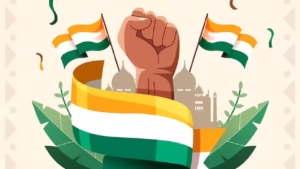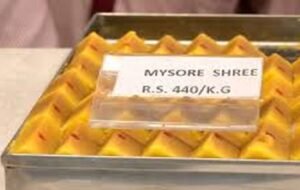
Freedom Fries & Mysore Pak: When Patriotism Becomes a Food Fight
Introduction: Why in News?
In a recent turn of events reflecting the politicization of cultural symbols, a Jaipur-based sweet shop renamed iconic Indian sweets like Moti Pak and Mysore Pak as Moti Shree and Mysore Shree, citing patriotic sentiments. This act echoes a historical pattern where nations have renamed food items during geopolitical tensions to demonstrate nationalism—most famously seen in the US post-9/11 with the rechristening of French Fries as Freedom Fries.
This incident is now part of broader debates surrounding identity, patriotism, and linguistic politics. It is highly relevant for CLAT Current Affairs 2026, as it raises questions about language, cultural appropriation, constitutional freedom, and symbolic politics.
Point-Wise Summary of the Article
- Triggering Event:
- A sweet shop in Jaipur renamed “Moti Pak” and “Mysore Pak” to “Moti Shree” and “Mysore Shree”.
- The stated aim was to remove “Pak”, seen as culturally inappropriate or linked to Pakistan.
- Misinterpretation of Terms:
- The term ‘Pak’ in “Mysore Pak” is not related to Pakistan, but derived from Kannada and Sanskrit, referring to a cooking process involving syrup and heat.
- The misunderstanding reflects how linguistic roots can be wrongly politicized.
- Similar Historical Incidents:
- USA (2003): Renamed French Fries to Freedom Fries after France opposed the Iraq invasion.
- World War I: Sauerkraut was renamed Liberty Cabbage; Frankfurters became Liberty Dogs.
- Iran (2005): “Danish pastries” renamed “Roses of the Prophet Muhammad” after a cartoon controversy.
- Canada (Trump Era): Americanos renamed as Canadianos during a trade war with the US.
- Critique of Nationalism through Food:
- The writer critiques the trend of attaching patriotic sentiments to food, arguing that nationalism can become performative when used to rename everyday items.
- The renaming doesn’t enhance patriotism but may instead reveal insecurity or ignorance of cultural heritage.
- Examples from Indian Culture:
- In Bengali, “Pak” refers to the texture or consistency of sweets like “Kora Pak” and “Naram Pak”.
- The renaming suggestion to “Kora Shree” or “Naram Shree” was mocked as bureaucratic or tokenistic.
- Cultural Irony:
- Even the name “French Fries” was a misnomer as the dish originated in Belgium.
- The original “Mysore Pak” was created by a royal cook named Madappa in the Mysuru palace, unrelated to Pakistan.
- Conclusion by the Author:
- Patriotism is better expressed through values, not symbolic gestures like renaming food.
- The real essence of unity lies in embracing diversity rather than erasing cultural plurality.
Explanation of Peculiar Terms (CLAT-Friendly Glossary)
- Pak:
- In Kannada and Sanskrit, it refers to a cooking technique, not any national affiliation.
- Freedom Fries:
- A symbolic renaming of French Fries in the US to protest France’s opposition to the Iraq war.
- One Nation, One Language Sentiment:
- Refers to the growing push toward cultural homogenization at the cost of regional identities.
- Performative Patriotism:
- Symbolic actions done in the name of nationalism that may lack genuine impact or understanding.
Relevance to CLAT 2026 Aspirants
This article serves as a case study in symbolic politics, cultural federalism, and constitutional freedom of expression. For CLAT and law aspirants, this raises important questions:
- Freedom of speech and expression (Article 19)
- Protection of cultural and linguistic rights (Article 29 and 30)
- Right to life with dignity and cultural autonomy (Article 21)
- State and individual responsibility in nation-building
Students should prepare to analyze:
- When does patriotism cross into performative nationalism?
- Should government or businesses regulate names based on perception?
- How should courts balance cultural traditions with national sentiment?
Conclusion: Beyond Food – A Test of Constitutional Maturity
While changing names of dishes may seem trivial, it raises serious questions about how identity and nationalism are negotiated in modern India. For CLAT aspirants, such case studies are essential to evaluate the interplay between law, culture, and political symbolism. Instead of restricting patriotism to cosmetic renaming, students must learn to interpret the spirit of the Constitution — one that protects diversity, encourages dialogue, and avoids reductionism.







